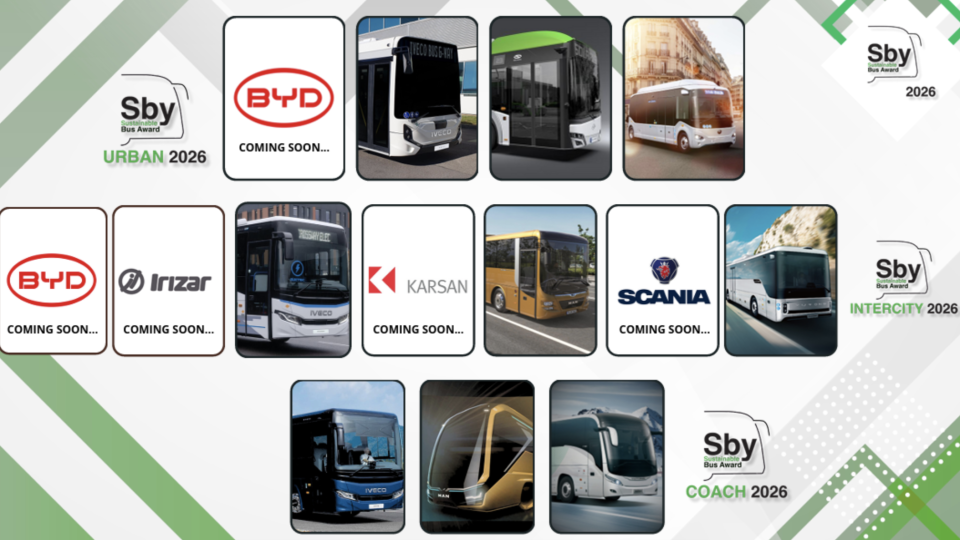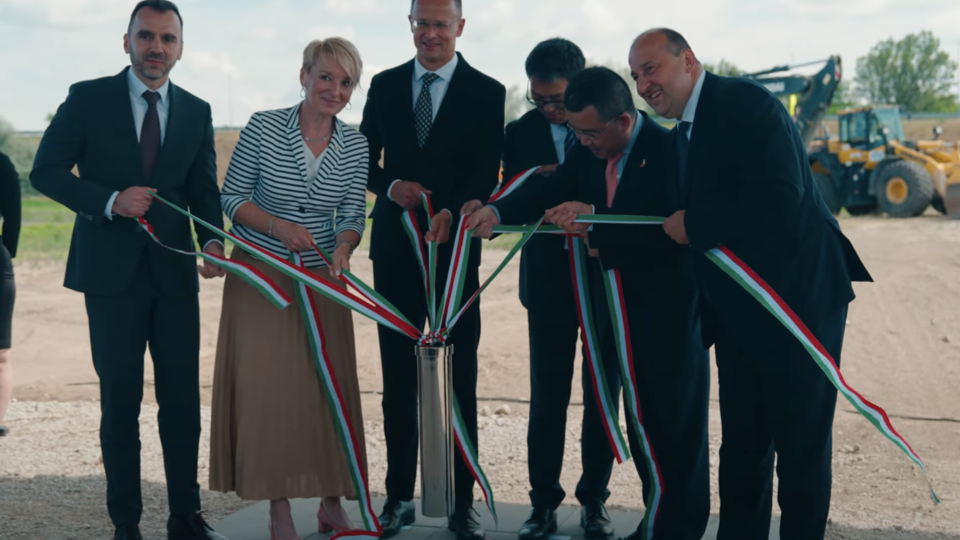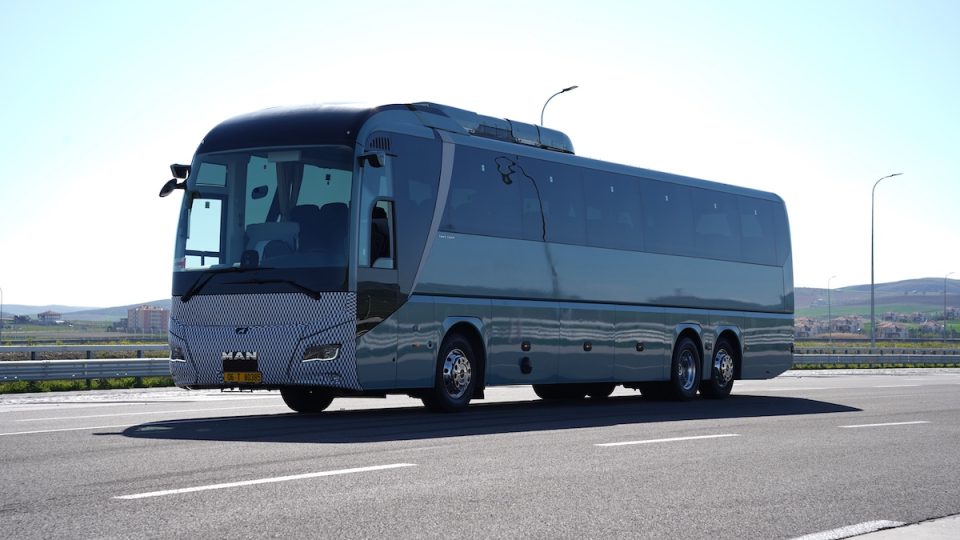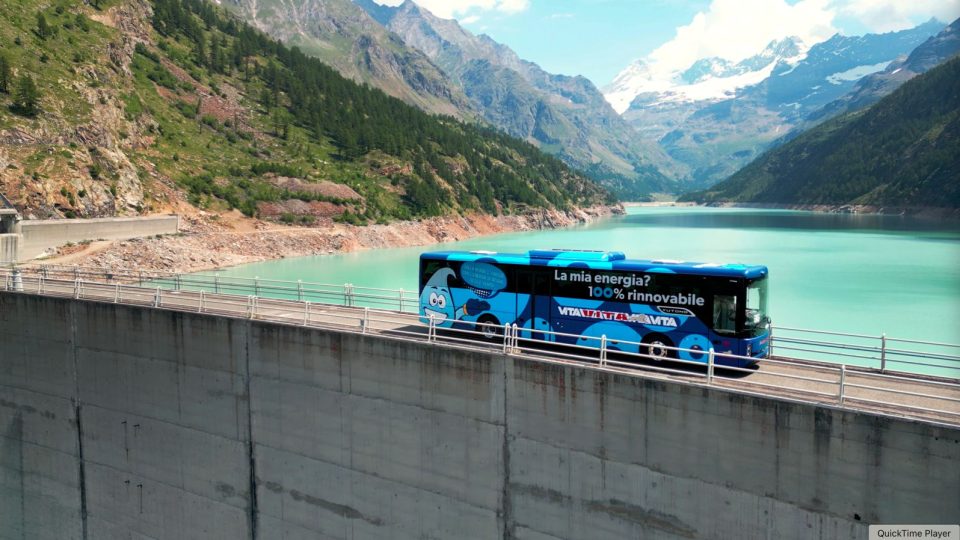Electric buses in Edmonton, 40 Proterra vehicles in delivery within 2020
With 21 e-buses delivered and 19 on their way to the operator, Edmonton Transit Service (ETS) is now deploying one of the largest battery-electric bus fleet in Canada. Together with the presentation of the 21 new vehicles, produced by California-based manufacturer Proterra, ETS unveiled its purpose-built electric bus garage. With this deployment, ETS also becomes […]
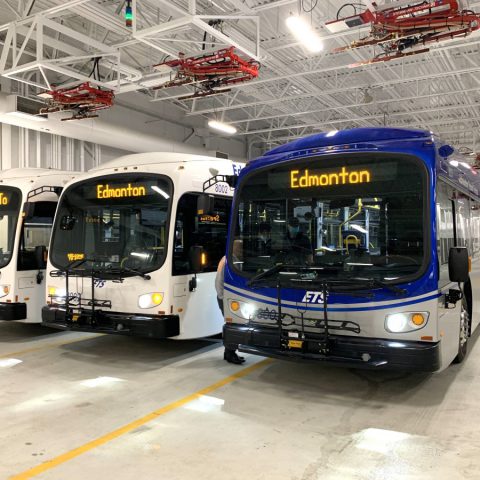
With 21 e-buses delivered and 19 on their way to the operator, Edmonton Transit Service (ETS) is now deploying one of the largest battery-electric bus fleet in Canada. Together with the presentation of the 21 new vehicles, produced by California-based manufacturer Proterra, ETS unveiled its purpose-built electric bus garage.
With this deployment, ETS also becomes the first to implement in-depot overhead charging on the continent. ETS will begin putting the electric buses into service in early August. Proterra got its first order from Canadian market in summer 2018, from Toronto.
Providing more than 87 million rides a year in Edmonton, ETS currently operates approximately 1,000 diesel buses in a 700-square-kilometer service area. The City of Edmonton has a goal to reduce greenhouse gas emissions by 50% by 2030.
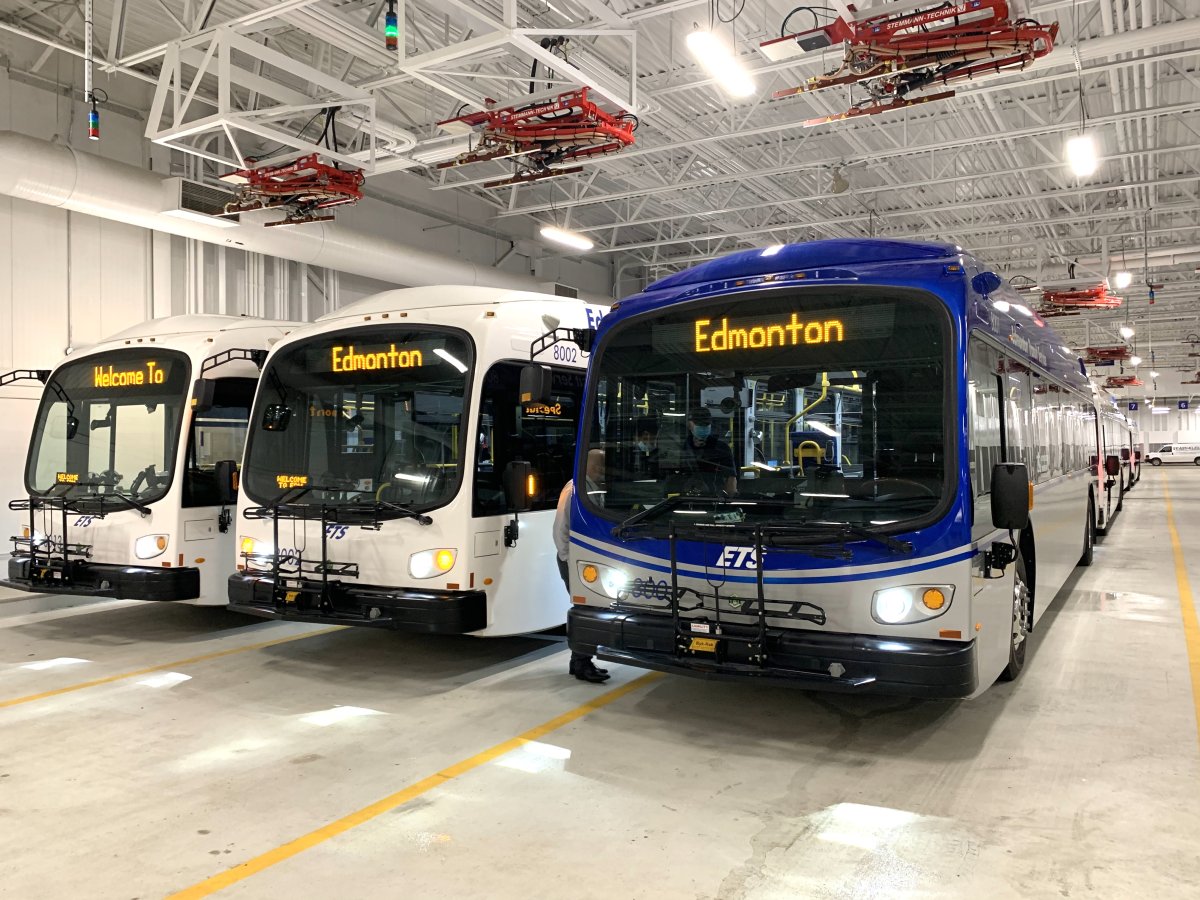
660 kWh on board of Edmonton’s electric buses
Edmonton selected the 40-foot Proterra Catalyst E2 max vehicle with 660 kWh of onboard energy and the DuoPower drivetrain. The E2 max bus has six Proterra battery packs on board – the most energy storage on any 40-foot electric bus – enabling these vehicles to get approximately 350 km of range on ETS routes. This vehicle model famously broke in 2017 the world record for the longest distance traveled by any electric vehicle on a single charge (1,101.2 miles), Proterra points out, and ETS is the first customer in North America to put it into service.
DuoPower configuration for Proterra e-buses in Edmonton
The DuoPower drivetrain delivers nearly twice the horsepower and five times better fuel efficiency than a standard diesel engine, the producer highlights. Featuring two electric motors, the DuoPower drivetrain delivers an impressive 510 horsepower, accelerating a Catalyst bus from 0-20 mph in under six seconds.
In addition, the DuoPower drivetrain can propel a bus up a 25 percent grade, making it an ideal option for routes with steep hills.
“This is one of the most impressive end-to-end deployments of battery-electric transit buses we’ve seen in North America,” said Jack Allen, CEO of Proterra. “The ETS deployment showcases how to successfully implement an electric bus fleet and charging infrastructure for current fleet needs, as well as plan for expansion in the near future. We are proud to partner with ETS to deliver clean, quiet transportation to Edmonton.”
A new garage in Edmonton. Just for electric buses
To charge its new buses, Edmonton also unveiled the new Kathleen Andrews Garage, named after Edmonton’s first woman transit operator, who worked for the City for 23 years. ETS collaborated with the Proterra Energy team to install 26 ABB 150 kW depot chargers connected to inverted pantographs and seven 60 kW Proterra plug-in chargers in the maintenance area, all of which are interoperable and standardized.
ETS bus operators are able to drive the buses into assigned parking spots and connect to the respective overhead chargers with the flip of a switch, and begin charging immediately or wait until a designated time when fleet management software will initiate charging. ETS, Proterra, and ABB created a first-of-its-kind installation in North America using RFID technology, Wi-Fi, and 2-step authentication that ensures each bus connects to its respective overhead charger.
ETS uses the Proterra APEX Connected Vehicle Intelligence System to monitor and manage its fleet of electric buses and charging systems. By using the APEX system, ETS will be able to easily monitor the status of its vehicles and gather information such as state of charge, charger status, bus efficiency, distance traveled, and more. Charge management features keep energy consumption from the chargers below set limits, minimizing electricity costs and ensuring the power draw stays within facility limits. A cloud-based portal also allows ETS to review historical data on vehicle performance, helping inform decisions to optimize operations.
Edmonton, electric buses are part of public transport future
“For many years I’ve advocated for the adoption of electric buses in our city, and I’m happy to see that Edmonton is leading the way. Our purchase is historic in that it represents the largest purchase of electric buses in Canadian history,” says Mayor Don Iveson. “Electric buses are a major component of the future of public transit in our city and across Canada, because they save the City money and benefit not only transit users who will get to experience the perks of a quieter commute with decreased emissions, but also Edmontonians who aren’t regular commuters on our transit system, as they’ll also benefit from the city meeting its energy and climate goals.”
“From the start, we’ve been very intentional about how we’ve designed our electric bus program,” says Ryan Birch, Director of Transit Operations, ETS. “We’ve taken a unique approach to charging our buses inside transit facilities. This provides important redundancy that makes our electric bus fleet more reliable for transit customers, and will help us continue to modernize our transit system.”




